How Rescheduling Marijuana Could Change Access and Affect State Dispensaries

The potential reclassification of marijuana from Schedule 1 to Schedule 3 in the Controlled Substances Act could significantly enhance access and diversify the range of products available for medical marijuana patients. However, this change is not expected to directly influence the functioning of state-regulated medical marijuana (MMJ) dispensaries.
Amy Rubenstein, a partner at the international law firm Dentons, emphasizes that shifting cannabis to Schedule 3 would primarily open up avenues for its inclusion in the marketplace through FDA-approved drug channels. This move would facilitate the development of cannabis-based pharmaceuticals and their subsequent approval by the U.S. Food and Drug Administration. Once these drugs receive FDA clearance, they could be dispensed via federally licensed pharmacies upon prescription.
However, Rubenstein points out that the process of drug development, including necessary studies and obtaining FDA approval, is a lengthy one. Consequently, it will be some time before marijuana-based drugs are available in pharmacies. In the meantime, medical marijuana patients can still procure regulated cannabis products from state-licensed dispensaries.
This rescheduling could also provide a layer of security for state-regulated recreational marijuana retailers, reducing the fear of federal intervention, as per industry observers.
"The state-legal markets are not going to disappear," asserts Rubenstein.
Echoing this sentiment, Justin Brandt, a partner at the Scottsdale, Arizona-based law firm Bianchi & Brandt, foresees the eventual availability of medical marijuana products in pharmacies. However, he cautions that attaining FDA approval under Schedule 3 status involves rigorous clinical trials and procedures akin to those undertaken by large pharmaceutical companies—a process both costly and time-consuming.
As for marijuana in its flower form, experts anticipate that the FDA is unlikely to approve combustible products. Vince Ning, CEO of California marijuana distributor Nabis, envisions a future where marijuana might be sold in pharmacies, but likely in non-combustible formats such as pills or medical-grade concentrates.
"I just don't see a pharmacy or a Kaiser Permanente selling cannabis flower," Ning remarks, adding that he hopes for the expansion of direct-to-consumer channels and greater access overall to combat the illicit market. Despite these potential changes, Ning believes dispensaries will continue to play a vital role.
Michigan's Recreational Marijuana Sales Surpass Beer, Wine, and Liquor
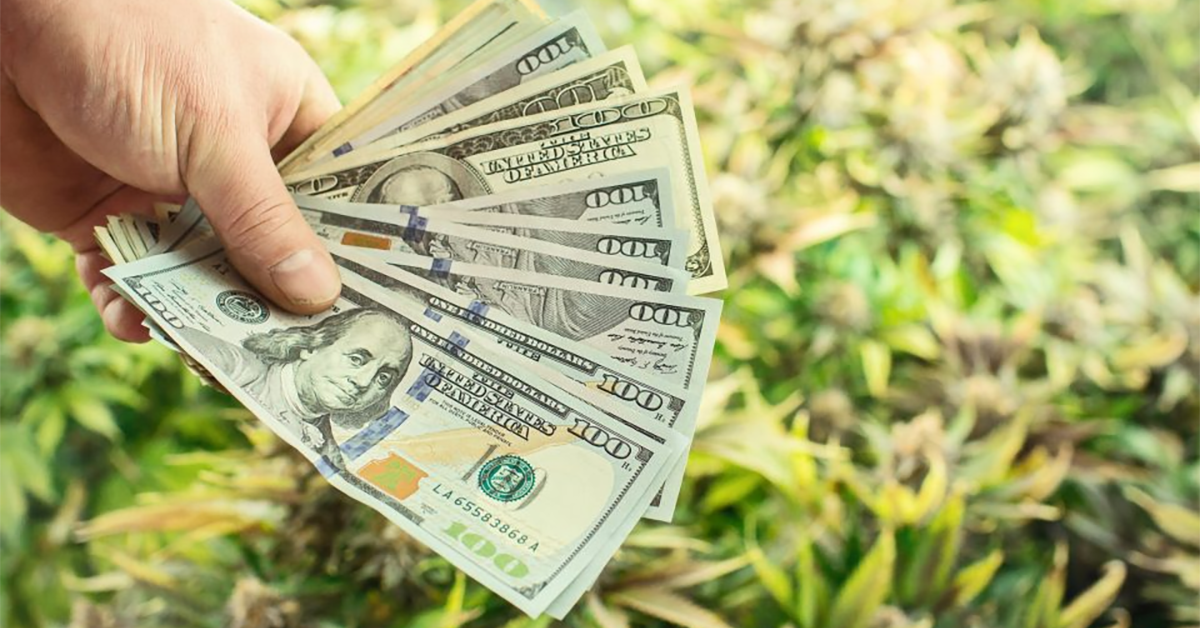
In Michigan, recreational marijuana sales have surpassed those of beer, wine, and liquor, reflecting a significant shift in consumer preferences and market dynamics.
The latest report from the House Fiscal Agency, released last week, highlights this trend with striking numbers. In the 2023 fiscal year, which concluded on September 30th, Michigan's recreational marijuana excise tax revenue soared to $266.2 million. This marks a substantial 49.1% increase from the previous year and is notably 38% higher than the $192.6 million garnered from the sales of beer, wine, and liquor in the same period.
This widening gap underscores not only Michigan's robust consumer market for marijuana but also the differences in tax structures for these products. Recreational marijuana in Michigan is subject to a 10% excise tax at both the wholesale and consumer levels. In contrast, alcohol excise taxes are considerably lower, with beer wholesalers paying $6.30 per 31-gallon barrel and wine and champagne attracting a $0.51 per gallon tax. It's important to note that these figures do not include Michigan's 6% sales tax, which applies to all these consumables but is not reflected in the excise tax report.
Since the opening of recreational marijuana shops in December 2019, the industry has experienced explosive growth. In the fiscal year 2023, nearly $2.8 billion worth of recreational marijuana was sold in Michigan, peaking at $270.63 million in August alone.
This surge in marijuana sales is significantly benefiting communities that have opted to permit marijuana production and sales. From the fiscal year 2022 tax revenues, which included an additional $5.8 million from medical marijuana taxes, the state distributed $59.5 million to 224 municipalities and counties involved in marijuana sales.
Michigan law dictates that 30% of recreational marijuana tax revenue is shared between counties and municipalities, based on the number of marijuana businesses in each area. In this arrangement, each municipality hosting marijuana sales received $51,841.21 for every licensed retailer or microbusiness.
However, it's noteworthy that less than 15% of Michigan's 1,773 municipalities have chosen to participate in marijuana sales, leaving nearly 1,000 communities without this source of tax revenue.
Of the remaining 70% of marijuana tax revenue, half is allocated to the state's School Aid Fund for K-12 education, with the other half going to the state's transportation fund. Despite these contributions, recreational marijuana taxes constituted only 0.8% of Michigan's $33.8 billion total tax revenue for the fiscal year. Income and sales taxes remain the primary revenue sources for the state, with tobacco taxes—primarily from a $2 per pack cigarette tax—continuing to be a significant non-sales tax revenue stream, bringing in over $722.2 million in fiscal 2023.
Detroit Expands Cannabis Landscape with Latest Licensing Round
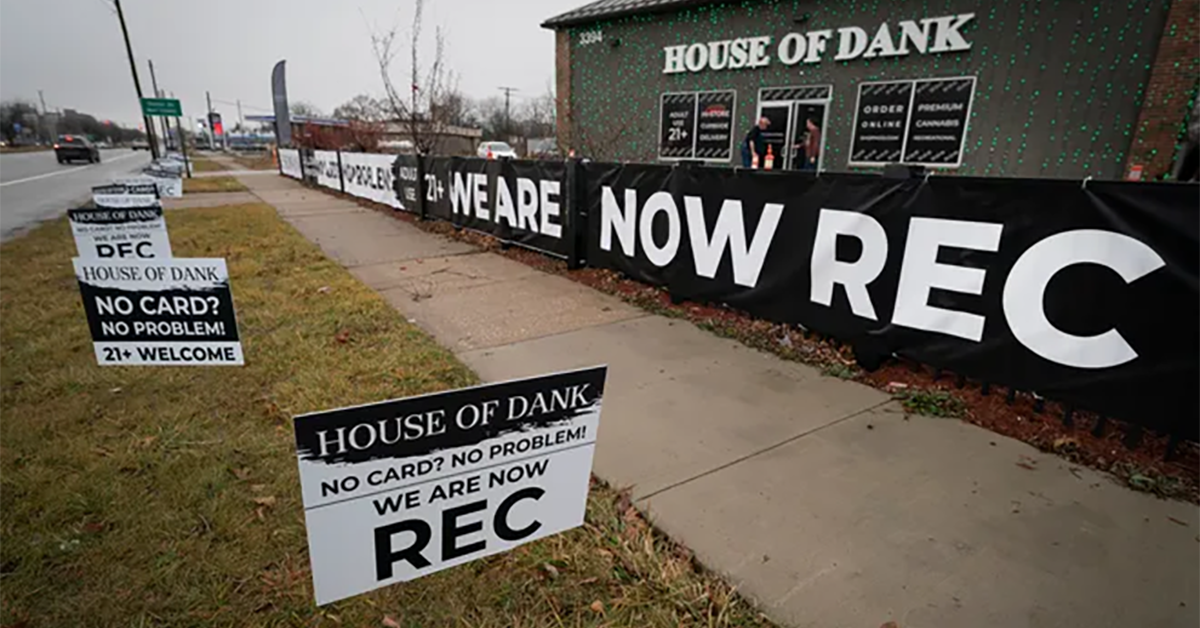
Detroit's burgeoning recreational marijuana sector marked a significant milestone as the city's Office of Marijuana Ventures and Entrepreneurship announced a fresh wave of licenses, bringing new retail, microbusiness, and consumption lounge establishments to the forefront. This development underscores Detroit's continued commitment to fostering a diverse and equitable cannabis industry.
In a competitive application process, 37 out of 65 applicants were awarded licenses to commence operations in various facets of the marijuana business. Notably, the majority of these licenses were allocated for recreational marijuana dispensaries, demonstrating the growing demand and acceptance of cannabis in the city. Additionally, one applicant received the green light to open what could be Detroit's first-ever marijuana consumption lounge, a concept gaining traction in various parts of the country.
Kim James, the director of the Office of Marijuana Ventures and Entrepreneurship, applauded the recipients for their potential and dedication to uphold the city's core values concerning diversity and equity. In a significant nod to inclusivity, 13 of the licensed businesses are majority African American-owned, five are predominantly women-owned, and 21 have Detroit residents as majority owners.
This new wave of licensing follows almost a year after Detroit's initial announcement of 33 businesses receiving recreational marijuana licenses. This progress marks the culmination of a lengthy and complex effort by the city to distribute these coveted licenses. Detroit had to navigate numerous legal challenges as it sought to establish a fair licensing process, particularly emphasizing "equity applicants." These applicants typically represent individuals from communities historically affected by marijuana prohibition and enforcement, including those with certified Detroit Legacy status residing in Detroit or other similarly impacted areas.
Since recreational marijuana became available for purchase in Detroit in early January, the city now boasts 31 operational recreational marijuana retailers. The economic impact of this burgeoning industry is underscored by the imposition of a 10% state excise tax on recreational marijuana products. The Michigan Department of Treasury is expected to announce early next year the allocation of this tax revenue to Detroit, marking the city's first receipt of funds from the Marihuana Regulation Fund. During Michigan's 2023 fiscal year, marijuana tax revenue amounted to a substantial $266.2 million.
April 2022 marked the beginning of Detroit awarding unlimited licenses for activities such as cannabis cultivation and processing, further expanding the industry's scope. In this latest round of licensing, four applicants were granted provisional certificates to open consumption lounges, and two others for microbusinesses, contingent upon securing a property within 18 months—a process in which the city has pledged support.
Before commencing operations, these newly licensed businesses must obtain final approvals from the state of Michigan, a crucial step towards actualizing their business plans.
The announcement of these new licenses is a clear indication of Detroit's ongoing efforts to create a robust, diverse, and equitable recreational marijuana market, reflecting the city's broader goals of economic growth and inclusivity. As this industry continues to evolve, Detroit positions itself as a key player in the ever-expanding landscape of the legal cannabis market.
Stolen Vehicle Used to Ram into Detroit Dispensary in Bold Burglary
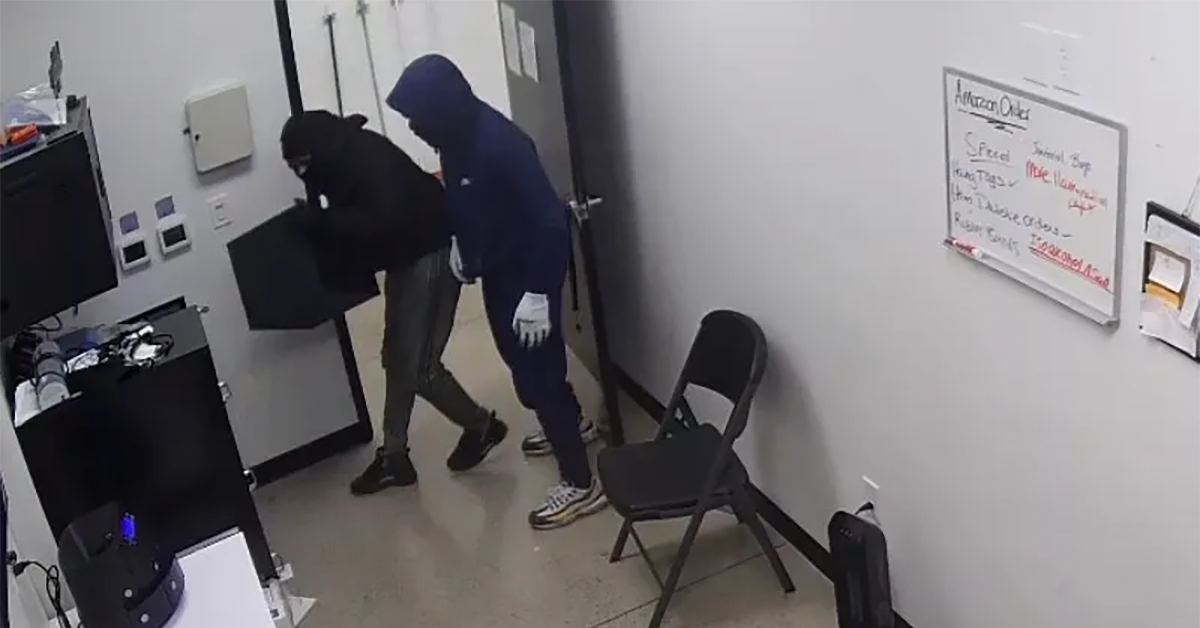
Update: We have confirmed that the dispensary that was hit is "Cloud Cannabis" located at 16001 Mack Ave.
Detroit authorities are reaching out to the public for help in identifying individuals involved in a recent armed robbery and burglary at a local marijuana dispensary. The incident occurred early in the morning on Saturday, November 11th, around 6 a.m.
The event unfolded when two individuals, armed and emerging from a black Cadillac SUV on Mack Avenue, confronted a 45-year-old security guard in his vehicle. The assailants reportedly seized the guard's keys and cell phone before fleeing. Concurrently, three other individuals used an older Chevrolet SUV to forcibly enter the marijuana dispensary, committing burglary.
Following the break-in, the trio escaped in the black Cadillac SUV, abandoning the Chevrolet at the scene, which police later recovered.
The incident, captured on video surveillance, showed two of the suspects entering an office within the dispensary and removing two safes. The contents of the safes and whether any marijuana or other items were taken remain undisclosed.

The Detroit Police Department, actively investigating the case, has released photos and videos of the suspects. They urge anyone with information or who can identify the suspects to contact the Detroit Police Department at 313-596-5540 or to reach out to Crime Stoppers at 1-800-SPEAK-UP.
Major Drug Bust at Grand Rapids Smoke Shops Tied to Wisconsin Murder Case
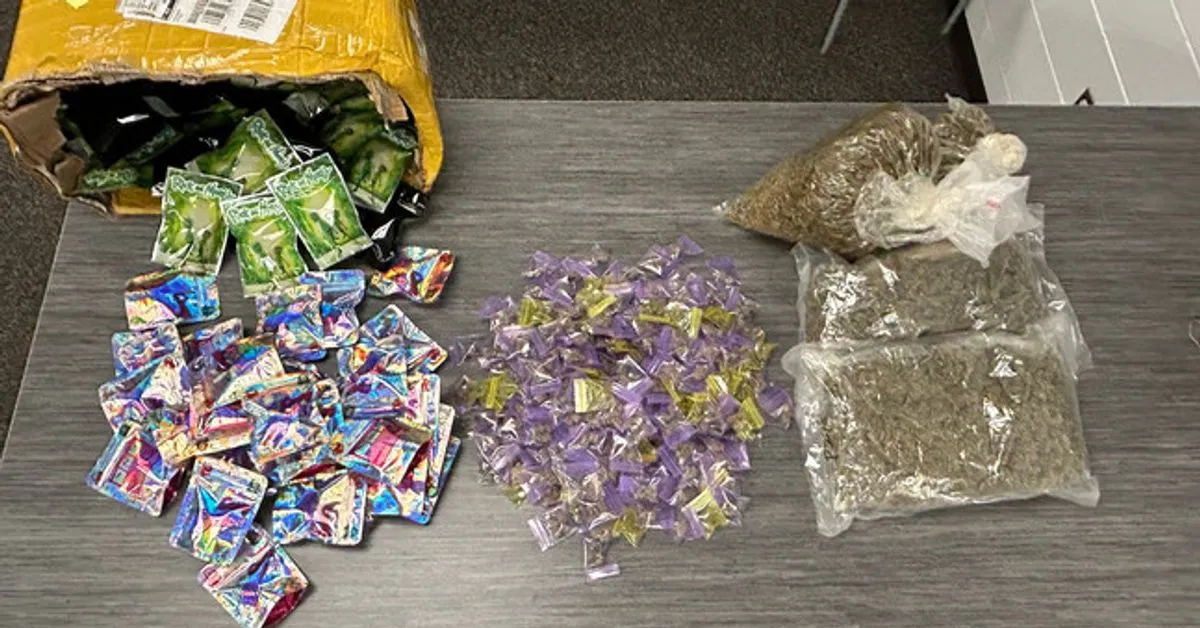
In a recent operation, Grand Rapids police conducted searches at two local smoke shops as part of an investigation related to a homicide case in Milwaukee, Wisconsin. The suspect in the case, Julian Kelley, who is now in custody, was reportedly a frequent visitor to both locations of Flavors Smoke Shop, situated at 517 Leonard St NW and 2332 Division Ave S, as per the Grand Rapids Police Department.
During the search, authorities discovered a significant amount of illegal substances. This included over 30 pounds of bulk marijuana, numerous retail-sized packages of marijuana buds, THC vape cartridges, and THC-infused edibles. Additionally, stolen property was recovered at the scene. Some of the seized items are believed to be similar to products recently stolen from legally operating dispensaries in the area.
According to police reports, the Flavors Smoke Shop locations are not authorized to sell cannabis or THC products.
Chief Eric Winstrom of the Grand Rapids Police Department expressed satisfaction with the operation, particularly as it supported the Milwaukee police in their murder investigation and revealed criminal activities affecting the Grand Rapids community. He anticipates further developments and potential arrests as the investigation proceeds, praising the collaborative effort of the detectives and local law enforcement agencies involved.
Court Order Lifted, Menominee's Marijuana Shops Resume Business
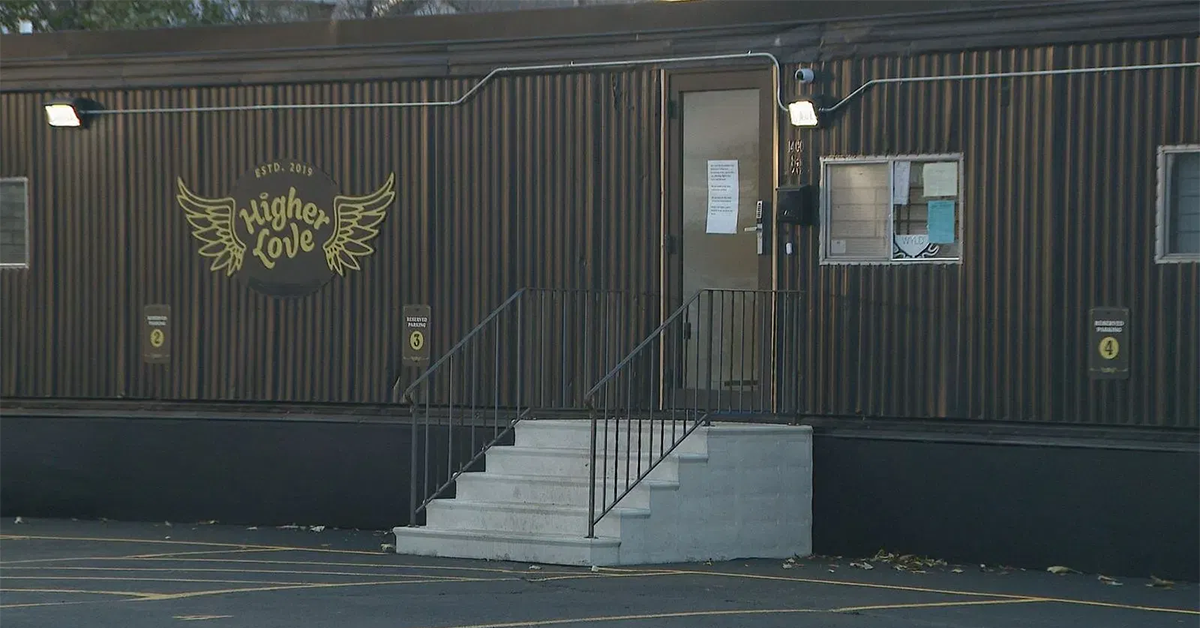
The temporary closure of three marijuana dispensaries in Menominee, which impacted a significant portion of the local cannabis market, has ended after a 10-day halt. The affected dispensaries - Higher Love, Lume Cannabis Company, and Nirvana Center - had been forced to cease operations due to a court order, resulting in temporary unemployment for nearly 70 workers.
A crucial court hearing took place on Monday, scrutinizing the validity of the order that initially caused the shutdown. Circuit Court Judge Mary Barglind reviewed the situation, acting on a request from the city of Menominee for clearer understanding regarding the directive issued on November 3rd.
This legal tussle traces back to 2021, when Menominee chose to grant marijuana retail permits exclusively to two dispensaries, Rize and The Fire Station. This decision was met with legal challenges from dispensaries that were initially denied permits. Subsequently, following changes in the city council, a new ordinance was enacted, leading to the authorization of permits for those previously excluded dispensaries. This change sparked further legal action from Rize and The Fire Station, culminating in the recent court developments.


 Helpful Links
Helpful Links